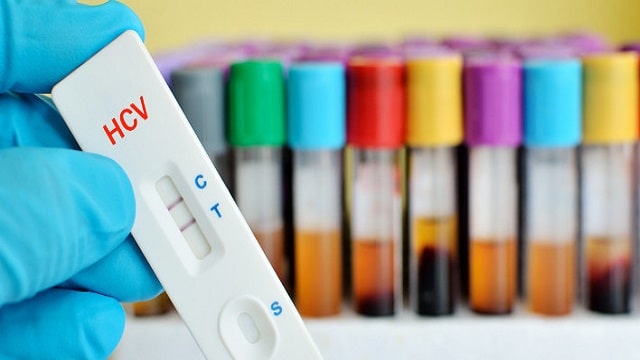Hepatitis C Check (Anti-HCV)
A Hepatitis C check (Anti-HCV) is an examination carried out to diagnose hepatitis C specifically by detecting the presence of the hepatitis C virus (HCV/Hepatitis C Virus) in the body.
HCV is the main cause of hepatitis C. This virus can cause inflammation of the liver. In some cases, it can also trigger chronic liver disease, even liver cancer.
To diagnose hepatitis C, the doctor will perform a hepatitis C check by taking a blood sample. The sample will then be examined further in the laboratory.
Why Do Hepatitis C (Anti-HCV) Test?
Hepatitis C (Anti-HCV) check aims to detect the presence of hepatitis C virus in the body. Some reasons why this examination is important to do are:
- The hepatitis virus can attack without causing symptoms.
- Through this examination, a person can protect or minimize the risk of family members contracting this virus.
- A quick diagnosis allows for quick treatment. This can increase the chances of recovery.
- Treatment for hepatitis C that is carried out as soon as possible can also prevent complications such as cirrhosis and liver failure.
You can also ask your doctor before doing this test.
When Should You Get a Hepatitis C (Anti-HCV) Test?
Hepatitis C (anti-HCV) check is recommended to be done at least once in a lifetime. This is because everyone is at risk of being infected with the hepatitis C virus. Moreover, this viral infection is often asymptomatic.
However, there are several groups of people who are most recommended to undergo hepatitis C (anti-HCV) checks, namely:
- People who have ever used illegal drugs, especially injected drugs.
- People who have abnormal liver function test results without an unknown cause.
- Babies born to mothers infected with hepatitis C.
- Healthcare workers who are exposed to blood or are pricked by needles.
- Hemophiliacs who were treated with clotting factors before 1987.
- People who have undergone long-term hemodialysis treatment.
- People who received a blood transfusion or organ transplant before 1992.
- Sexual partner of someone diagnosed with hepatitis C.
- HIV sufferers.
- People born from 1945 to 1965.
- People who have been in prison.
How to Do a Hepatitis C (Anti-HCV) Check?
Hepatitis C (Anti-HCV) check is done by examining a blood sample. The doctor or health worker will take a blood sample to be examined in the laboratory.
There are two types of blood tests to check for hepatitis C (Anti-HCV), namely:
-
Hepatitis C Antibody Test (Anti-HCV Antibody)
This anti-HCV antibody test aims to detect antibodies produced by the body in fighting the hepatitis C virus. If the results obtained are positive, further examination is needed. The goal is to determine whether hepatitis is chronic or not.
This hepatitis C antibody test will remain positive even if someone has recovered from hepatitis C. Anti-HCV antibody test results are usually available within a few days to a week after the examination.
-
Virus Genetic Test (HCV RNA)
This type of test is performed if someone gets a positive result from a hepatitis C antibody test. If the genetic test for this virus shows a positive result, it means that the body has failed to kill the virus.
In other words, hepatitis C has become chronic. HCV RNA testing can also determine treatment response.
Once the doctor has confirmed that the patient has hepatitis C, there are several more tests that may be performed. The next test aims to check the level of liver damage.
Tests that will be performed include a liver biopsy, liver function tests, or magnetic resonance elastography (MRE) to see the condition and hardening of the liver tissue.
Where to Get Hepatitis C (Anti-HCV) Tested?
You can do a hepatitis C (anti-HCV) check at a hospital or laboratory, based on a doctor’s recommendation. This test is performed by experienced health workers.

